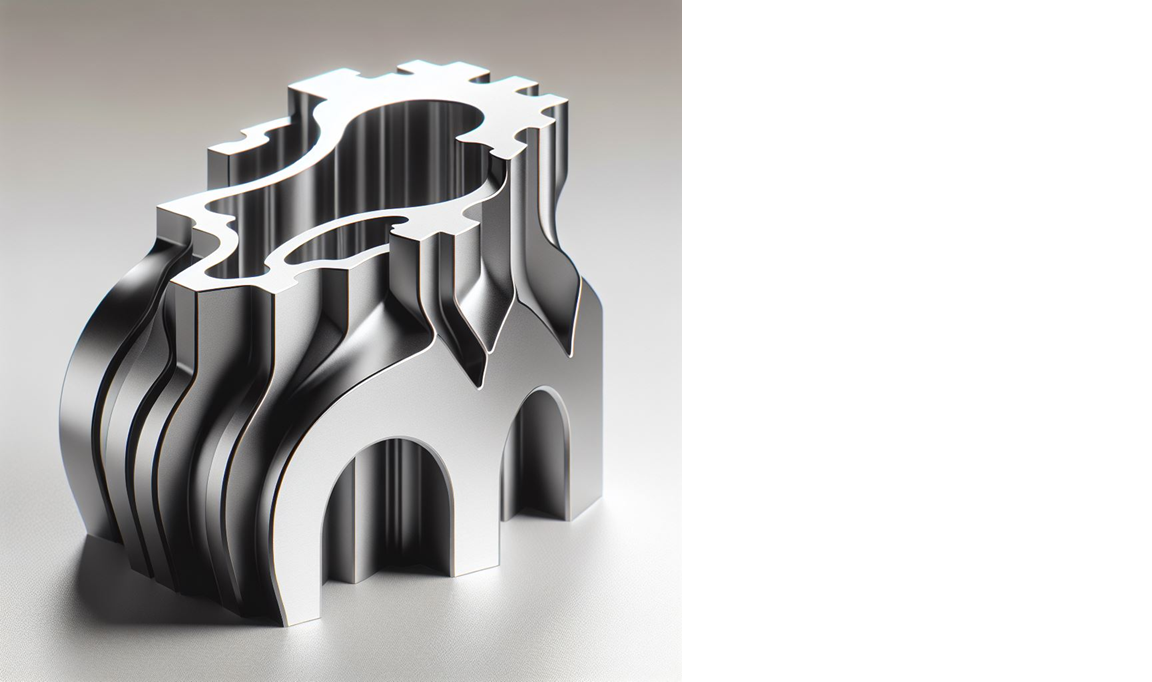OEM CNC – High-Precision Manufacturing for Industrial Applications
In modern manufacturing, OEM CNC solutions play a crucial role in producing high-quality, customized components. Original Equipment Manufacturers (OEMs) rely on CNC technologies to create precise parts used in industries such as automotive, machinery, and medical technology. Material properties like ductility, strength, hardness, and brittleness are key considerations when selecting suitable materials for CNC machining.
This article provides a deep dive into OEM CNC machining, its advantages, challenges, and applications.
What is OEM CNC?
OEM CNC refers to the manufacturing of components for original equipment manufacturers using processes like CNC milling, CNC turning, and CNC engraving. These techniques ensure high-precision parts that are later integrated into the final products of other manufacturers. Companies leveraging OEM CNC machining benefit from:
- Extreme precision through computer-controlled manufacturing
- Flexibility in producing prototypes and large-scale production
- Cost efficiency through optimized material usage and automated processes
Common materials for CNC machining include aluminum, stainless steel, polypropylene, and specialized alloys like 16MnCr5 or S235JR, chosen based on hardness, strength, and ductility.
OEM CNC Manufacturing Processes in Detail
1. CNC Turning – Precision for Rotational Components
CNC turning is a subtractive manufacturing process where a rotating workpiece is shaped by a cutting tool. This method is ideal for cylindrical or rotational parts requiring high dimensional accuracy.
- Applications: Shafts, bearings, axles, screws, bolts
- Advantages:
- High repeatability and tight tolerances
- Automated processing for fast production
- Minimal material waste due to precise cutting
- Challenges:
- Limited to rotationally symmetrical parts
- Higher costs for complex geometries
2. CNC Milling – Versatile Processing for Complex Geometries
In CNC milling, material is removed from a workpiece using rotating cutting tools. This process enables the creation of complex three-dimensional shapes used in various industries.
- Applications: Machine components, tools, automotive parts, aerospace structures
- Advantages:
- High design freedom for complex components
- Excellent surface quality
- Suitable for various materials
- Challenges:
- Longer processing times for precise details
- Increased tool wear when machining hard materials
3. CNC Engraving – Permanent Markings for Industrial Parts
CNC engraving is used for marking and labeling workpieces. It enables precise engraving of serial numbers, logos, or technical specifications onto materials.
- Applications: Machinery, medical devices, automotive, electronics
- Advantages:
- Permanent, wear-resistant labeling
- Ideal for mass production and serial marking
- Customizable for different materials
- Challenges:
- Engraving time increases with material hardness
- Limited to specific engraving sizes and depths
Material Selection: Importance of Hardness, Strength, and Ductility
Material selection in OEM CNC machining is crucial for ensuring durability and performance. Key factors influencing material choice include:
- Hardness: The ability of a material to resist deformation or abrasion. Harder materials like hardened steel are suitable for wear-resistant components but can be challenging to machine.
- Strength: The capacity of a material to withstand external forces without breaking or permanently deforming. High-strength materials like titanium or reinforced steel are used in demanding applications.
- Ductility: The ability of a material to deform plastically before breaking. Ductile materials like aluminum or polypropylene are easier to machine and suitable for flexible components.
Common Materials in OEM CNC Machining
- Aluminum: Lightweight, corrosion-resistant, excellent machinability
- Stainless Steel: High strength, corrosion resistance, ideal for long-lasting parts
- Polypropylene: Lightweight, chemical-resistant, commonly used for plastic housings
- S235JR & 16MnCr5: Popular steel grades for high-load applications
Applications of OEM CNC Machining
OEM CNC machining is widely used across industries that require high precision, durability, and efficiency.
- Automotive Industry: CNC machining is crucial for manufacturing engine components, transmission systems, brake parts, and structural elements that require high strength and accuracy.
- Aerospace Sector: Aircraft parts such as turbine blades, landing gear components, and structural frameworks demand high-strength materials and precise tolerances, making CNC machining indispensable.
- Medical Technology: Surgical instruments, implants, and diagnostic equipment are produced using CNC machining to ensure hygiene standards, biocompatibility, and precision.
- Industrial Machinery: OEMs in the mechanical engineering sector rely on CNC machining to produce gears, shafts, housings, and complex machinery parts.
- Electronics Industry: CNC-machined enclosures and heat sinks for electronic devices ensure optimal functionality and durability.
- Energy Sector: CNC machining is used in wind turbines, oil and gas equipment, and power generation components that require high wear resistance and strength.
The adaptability of OEM CNC manufacturing allows it to meet industry-specific requirements, ensuring high-quality, customized solutions for every sector.
Advantages of OEM CNC Machining
OEMs choose CNC machining to manufacture high-quality parts at scale. The benefits include:
- High precision: CNC machines achieve tight tolerances and consistent quality.
- Cost efficiency: Automation reduces production costs for larger volumes.
- Versatility: Various materials and complex geometries can be processed.
- Faster product development: Prototypes and small batches can be produced quickly, accelerating time to market.
- Minimal waste: CNC processes optimize material usage and reduce scrap.
Challenges in OEM CNC Machining
Despite its advantages, OEM CNC machining comes with challenges:
- High initial costs: CNC machines and tools require significant investment, making outsourcing to specialized OEM manufacturers a practical choice.
- Material selection: Choosing materials based on hardness, ductility, and strength is crucial for component performance.
- Supply chain dependencies: Delays in material sourcing can impact production schedules.
- Intellectual property concerns: Protecting sensitive product designs and manufacturing processes is essential when outsourcing CNC production.
Conclusion: OEM CNC as a Key to Efficient Production
OEM CNC machining is essential for companies that require customized, high-precision, and high-quality components. With processes like CNC turning, CNC milling, and CNC engraving, manufacturers can efficiently process various geometries and materials.
Through on-demand production, businesses can benefit from flexible and rapid manufacturing without investing in their own production facilities. Contact us for a custom quote and optimize your production today!




